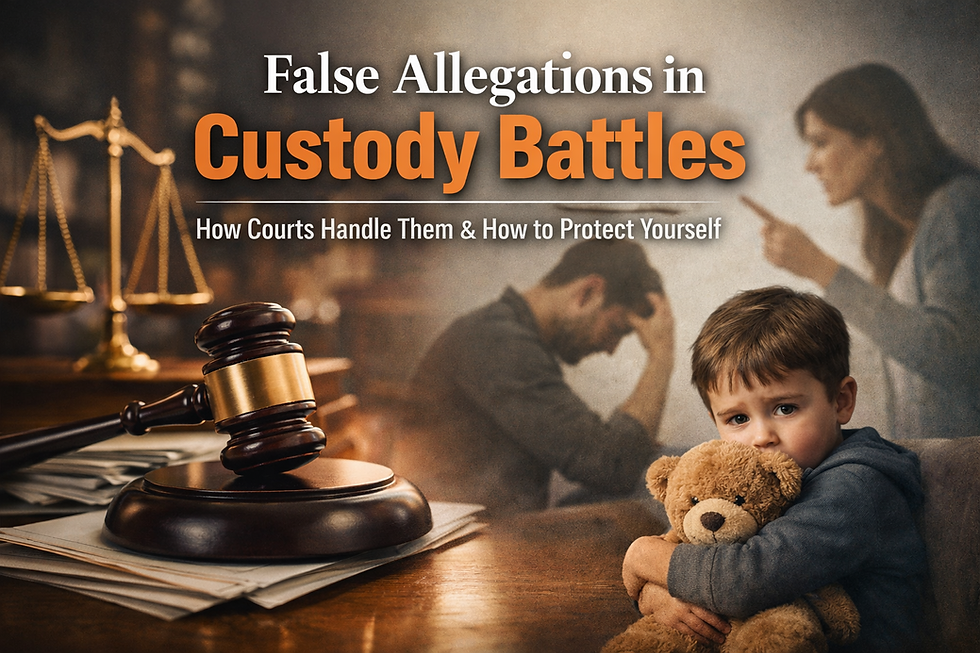The Impact of Mental Health on Custody Determinations in New York State
- Paul Tortora Jr.
- Oct 1, 2025
- 3 min read
Updated: Jan 12

As an experienced Syracuse family law attorney with years of experience navigating complex custody cases across Central New York, I've seen firsthand how mental health issues can influence court decisions. Custody determinations are always centered on the "best interests of the child," but when mental health comes into play, the process can become even more nuanced. In this blog post, we'll explore how New York courts evaluate parental mental health, the factors they consider, and what parents can do to protect their rights.
Understanding the "Best Interests of the Child" Standard
New York courts prioritize the child's well-being above all else in custody disputes. The "best interests" standard requires judges to weigh a variety of factors to determine what arrangement will best support the child's emotional, physical, and psychological development. While mental health can be one key element, it is not viewed in isolation. Instead, courts assess how a parent's mental condition affects their ability to provide a stable, nurturing environment.
For instance, emotional instability, mood disorders, or untreated mental illnesses can weigh against a parent if they impair caregiving. However, a diagnosis alone isn't grounds for denying custody. New York law emphasizes that a mental health issue must have a direct "nexus" to the child's best interests, meaning it has to have a demonstratable adverse impact on the child's well-being. This approach reflects a growing recognition of mental health as a manageable aspect of life, rather than an automatic disqualification.
How Mental Health is Evaluated in Custody Proceedings
When mental health concerns arise, courts often rely on evidence from multiple sources to make informed decisions. This might include testimony from the parents, observations during hearings, and input from the child's attorney or guardian ad litem. Judges look at the parent's history, including how they've managed their condition and whether they've sought treatment.
A key factor is whether the parent is actively addressing their mental health. Courts generally view seeking treatment, such as therapy or medication, as a positive sign of responsibility. On the contrary, untreated issues or denial of a problem can raise red flags, potentially leading to supervised visitation or loss of custody.
Substance abuse, often intertwined with mental health, is another critical element. If addiction compromises a parent's ability to care for the child, it can heavily influence the outcome, even for those in recovery.
The Role of Mental Health Professionals and Custody Evaluations
In contentious cases, New York courts can appoint mental health professionals to conduct forensic evaluations. These experts (psychologists, social workers, or psychiatrists) provide an objective assessment of the family's dynamics. The evaluation process typically includes:
Interviews: Separate sessions with each parent, the child (age-appropriately), and sometimes extended family or collaterals like teachers and doctors.
Observations: Watching parent-child interactions to gauge bonding and emotional support.
Psychological Testing: Tools to identify mental health disorders, substance issues, or behavioral concerns.
Contact a Syracuse Family Law Attorney Today
Mental health often plays a pivotal role in New York custody determinations. If you're facing a custody dispute involving mental health concerns, contact us today for a confidential consultation with an experienced Syracuse family law attorney to discuss your options.
For more information on child custody proceedings, please visit our Child Custody and Frequently Asked Questions pages
Disclaimer: This blog post is for informational purposes only and does not constitute legal advice. Laws and guidelines can change, so always verify with current statutes or a professional.


